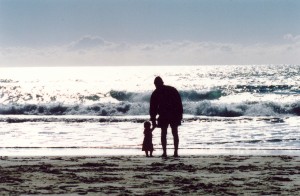I have to say, as the parent of a seven year old boy with autism, it is one of my greatest fears.
It? When an autistic child goes missing.
What happens if you child wanders off? How do you cope?
So far it has not happened . At present our son John is still quite clingy. Indeed he does not like to swim to the deep end of the pool. Other wise “bad things will happen” as he puts it. But I have to say I’m terrified that a day will come when he just wanders off.
Most of us in the ASD community have read about Avonte Oquendo the 14 year old from New York who went missing in October 2013. He remains were discovered three months later. His mother according to recent reports has decided to take the city among other to court for negligence.
A repeat of such an event is something which scares all parents but with a child with autism it does seem to be much higher.
So what should I do? Sadly it is impossible to watch John every minute to every daY. Hence this blog post.
I’m looking for advice from my readers. Please use the comments section below to add your opinions. It would be great if you could consider some of the following questions.:-
a) Has you child with autism ever wandered? If so what were the circumstance?
b) What do you do to prevent your child from wandering?
c) How effective is it?
d) What one piece of advice would you give to the parents of a child with autism who has just come missing?
e) What are the best places to turn for support?
Please remember that these are only suggestions as to what aspect of the topic to discuss. many thing you have to share will be of great interest to us.
Many thanks in advance.
| KirstyEllis | It may sound like a stupid idea but if it worry’s you that much that he could just wander off, check out the range of tracking devices you can put on just about anything. They come in all shapes and sizes and some are so tiny you could attach them to belts etc… so long as they are not removed you could find your child using GPS and real time tracking. My child will run off occasionally given the right situation. He is Autistic. |
| LorraineScottYoung | My daughter only tends to wander when she is in her own world and not aware of what she is doing, she is scared of traffic and roads so she tends to stay close. However if we are in doors for example a shopping centre she can easily wander off without even realising.
Once on a haven holiday she was having a spin on the dance floor, I popped my head into my bag for a second to get my purse for drinks, when I looked up she was gone. She had gone from the front of the entertainment room through 2 arcades and got into a Postman pat Ride – it was so scary. When we went to Butlins we tested her, we let her wander where she wanted so we could follow and see what she would do. Unfortunately she wandered down to the beach and if we hadn’t been following her she would have gone into the sea – again very scare. We now use a wristband from I am Lost – here is the link. So far she hasn’t wandered or got lost but I know should it happen she can point someone to her wristband which they pop a number into an app on their phone and it will dial my number. |




